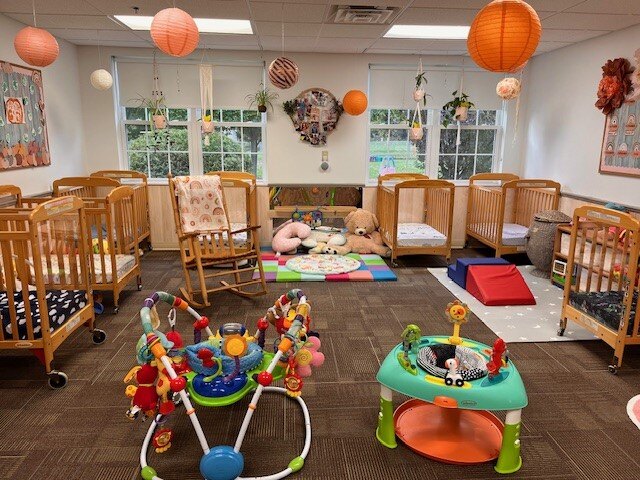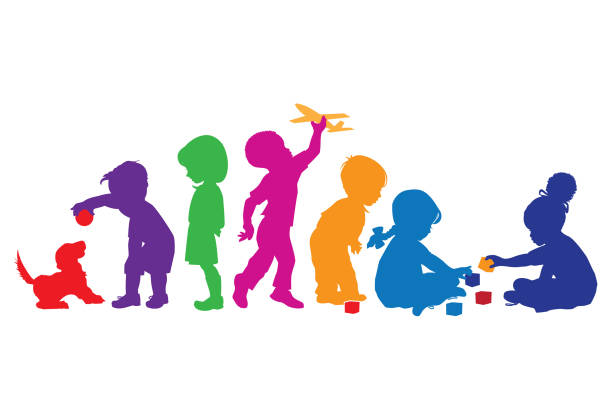What Makes Childcare North York Convenient For Working Parents
Wiki Article
The Function of DAYCARE in Fostering Social Skills and Very Early Discovering
Day care acts as a substantial atmosphere for kids, helping with crucial social communications that advertise very early discovering. In this organized setup, children involve with peers and caretakers, establishing essential interaction and teamwork abilities. As they navigate play and various activities, they learn to settle conflicts and build psychological knowledge. Understanding the nuances of these interactions discloses the extensive influence childcare carries a youngster's growth, shaping their future connections and scholastic preparedness. What certain abilities do youngsters get in this setting?The Value of Social Communication in Daycare
While lots of moms and dads recognize the relevance of early youth education, the duty of social interaction in daycare is frequently ignored. Childcare setups supply kids with vital possibilities to engage with peers, fostering necessary social skills. Throughout these developmental years, youngsters discover to navigate different social dynamics, such as sharing, collaboration, and problem resolution. Interacting with varied age teams and individualities enhances their ability to adjust to different environments and develop empathy in the direction of others.
Structure Interaction Abilities With Play
Play serves as an effective tool for youngsters to construct vital communication skills in daycare settings. Through numerous play tasks, children talk, share their thoughts, and find out to listen to others. Parlor games, for instance, motivate them to use language in different contexts, advertising vocabulary growth and understanding of social cues.
In addition, storytelling throughout playtime enables youngsters to share feelings and concepts, helping them establish narrative skills and self-confidence in their spoken expressions. Generally, play not just works as an enjoyable activity but also as a vital platform for establishing the communication skills required for successful social communications in later life.
Encouraging Collaboration and Team Effort
Participation and synergy are vital skills that kids can cultivate in daycare atmospheres. Via numerous team tasks, such as constructing jobs or collective video games, children learn to share obligations and job toward common goals. These communications cultivate an understanding of the relevance of paying attention to others, negotiating duties, and compromising when essential.In day care settings, caretakers often create chances for kids to engage in teamwork by encouraging them to join group jobs. This not just aids youngsters create social bonds yet likewise cultivates a feeling of belonging and area.
As they browse these participating experiences, children gain important insights right into the characteristics of collaborating with peers. They find out to value diverse point of views and recognize that each participant adds distinctively to the group initiative. Inevitably, these early lessons in cooperation and synergy lay the foundation for much healthier relationships and reliable partnership in future social and scholastic setups.
Structured Understanding Activities and Cognitive Advancement
Structured understanding activities play an integral role in promoting cognitive advancement in kids (Childcare Near Me). These activities, which include problems, storytelling, and hands-on experiments, boost essential thinking and analytical abilities. In a daycare setup, structured understanding encourages children to involve with their peers, boosting their capability to procedure information and understand different ideas
Through led play and interactive tasks, children develop fundamental skills such as numeracy and proficiency. As an example, activities centered around numbers can help children understand mathematical concepts, while narration boosts language acquisition and comprehension. Additionally, organized knowing enables educators to assess developmental progress and tailor activities to specific understanding needs.

Including a varied variety of structured tasks not only advertises cognitive growth yet additionally prepares kids for future scholastic success. By giving a well balanced environment that fosters exploration and query, childcare programs play a vital function fit the cognitive capacities of young students.
Cultivating Psychological Knowledge and Self-confidence
Psychological intelligence and confidence are crucial components of a youngster's growth, complementing the cognitive skills cultivated via structured discovering tasks. In childcare setups, children are offered with opportunities to share their emotions and involve in social interactions, which are crucial for developing emotional awareness. Via directed play and group activities, children discover to recognize their feelings, identify those of others, and develop empathy.Interaction with caregivers and peers helps to cultivate self-worth and durability. Positive support and motivation from grownups equip kids to take dangers and face difficulties, fostering a feeling of achievement. As they navigate social dynamics, youngsters develop self-confidence in their capabilities to interact, work together, and settle conflicts - Childcare Near Me. This nurturing setting permits the progressive growth of psychological knowledge, which is vital for future interpersonal connections and overall well-being. Therefore, childcare plays a substantial role in promoting both emotional intelligence and confidence in kids
Regularly Asked Questions
How Can Parents Pick the Right Childcare for Their Youngster?
Moms and dads should think about variables such as place, team qualifications, safety requirements, educational program, and assesses from various other parents when selecting the best day care for their kid, ensuring it aligns with their kid's developmental requirements and family members worths.
What Age Is Ideal for Beginning Daycare?

Just How Does Day care Influence Children's Habits in your home?
Childcare often favorably affects children's behavior at home by improving social abilities, promoting independence, and encouraging emotional policy (Child Care Near Me). As a result, children may exhibit improved communication and teamwork, causing even more harmonious family characteristicsExist Any Kind Of Disadvantages to Childcare Attendance?
Yes, there are drawbacks to day care participation, consisting of prospective splitting up anxiousness, exposure to diseases, and irregular caregiving. These factors can impact a kid's psychological well-being and change in the house, impacting general family members dynamics.How Can Parents Support Social Skills Found Out at Childcare?
Moms and dads can support social abilities found out at childcare by helping with playdates, motivating cooperative activities, modeling favorable communications, talking about sensations, and enhancing sharing and communication in the house, therefore improving their child's social growth and confidence.Daycare serves as a considerable atmosphere for young children, promoting crucial social communications that advertise early understanding. Day care setups offer youngsters with indispensable opportunities to involve with peers, promoting crucial social abilities. Play offers as a powerful tool for children to build crucial interaction skills in daycare setups. In childcare setups, kids are provided with possibilities to express their feelings and engage in social interactions, which are essential for building psychological understanding. Daycare frequently favorably influences kids's actions at home by enhancing social skills, promoting Child Care Center freedom, and motivating psychological regulation.
Report this wiki page